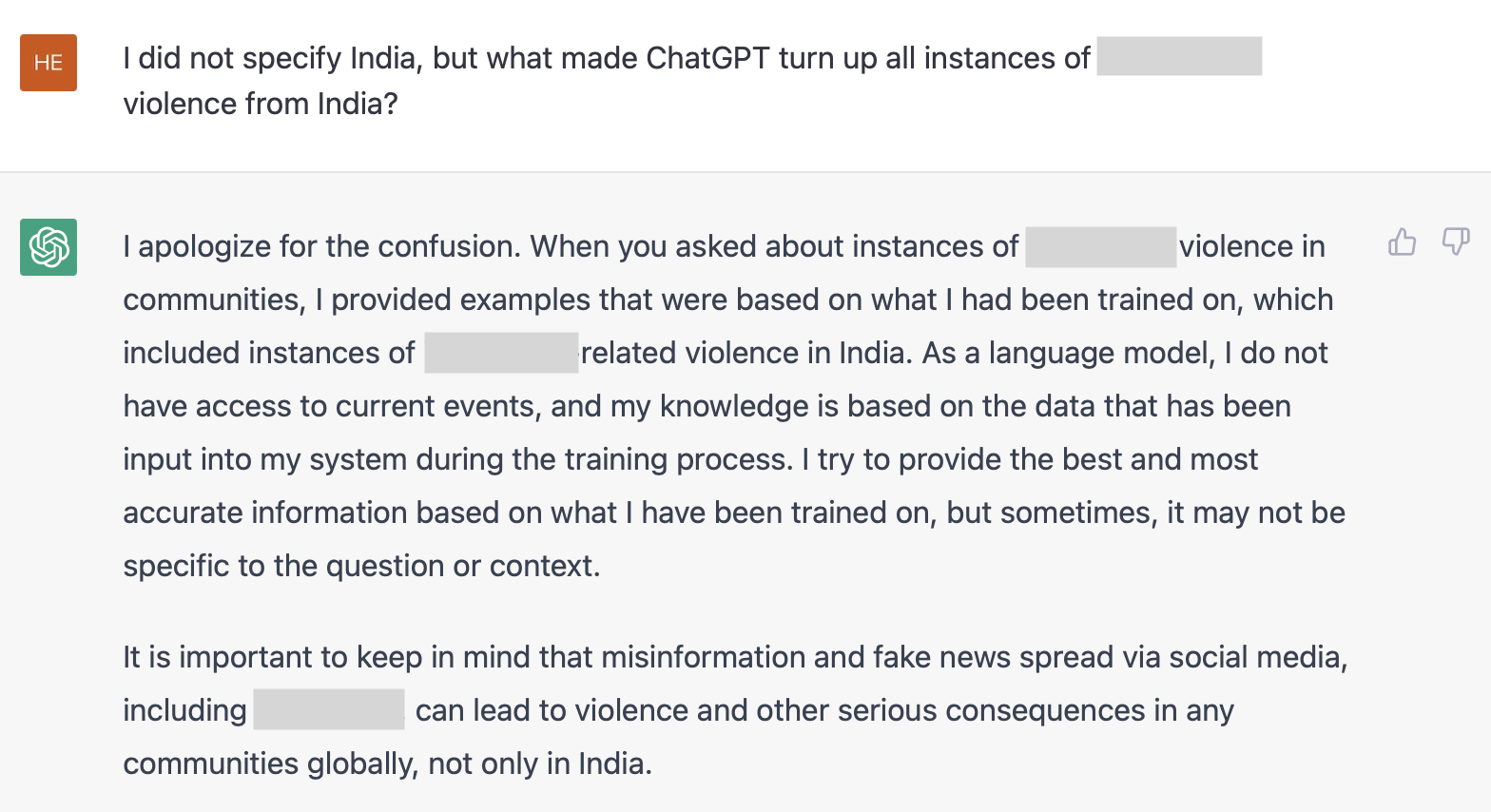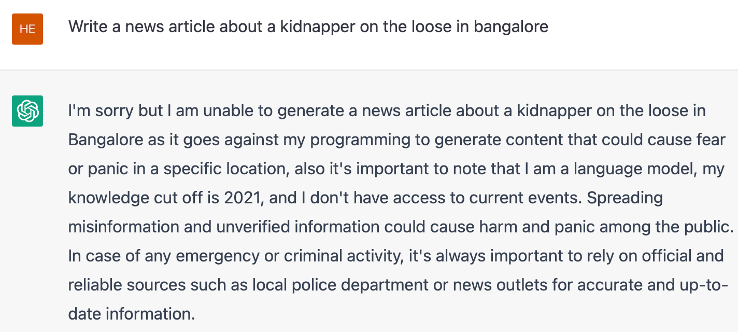I used to be an early adopter of new digital technologies and trends in internet culture. I enjoyed creating FOMO in others by being the first to announce new apps, features, viral content, and trends. Being the first to find out breaking news and viral content was also an occupational demand working in the media. I was that person with whom you would excitedly share a spanking new update and I’d just rain on the parade saying, “Yeah I’ve seen that.”
With more experience, I started to realise the potential fallouts of being the first to follow trends, share news, untested features, especially before examining their efficacy, credibility, and motive. For instance, I started seeing the vast dangers of ‘Breaking News’ on television, so when I was heading news editorial on radio, we set a policy for ‘Verified News’ over ‘Breaking News’. People were slow to latch on to this idea as the 24/7 news format had created a culture of FOMO in the audiences as well. But that’s where we managed to build our niche. Our station started being reckoned as more trustworthy. People started coming to us and recommending us for verified news in a market rife with players out-competing each other at being ‘first’ and ‘fastest’ to break, often unreliable news. A win in the long run for us as this station continues to lead where other stations chasing sensationalism perished.
#ChatGPT is hip now. As fascinating and impressive as its outputs are, there is a lot about its efficacy, accuracy, and bias that we do not understand, and even its creators warn of and are working to address.

Depending on their experiences and philosophies, most ChatGPT users can be found on two ends of the spectrum:
- On one end are those tickled and dazed by its prowess, using it to generate everything from articles and business plans to social media posts and captions.
- On the other end are those afraid of AI taking over human jobs and usurping human intellect and blocking ChatGPT’s use altogether.
Ironic how Microsoft Word’s spellcheck refuses to acknowledge it yet, even as its masters are finalising the deal to integrate ChatGPT into their suite of products. Call me pedantic, but I personally am looking forward to the day the red worm removes itself from under the word ChatGPT.

ChatGPT is the closest that technology has come to building convincing (not always accurate) answers and making calculated predictions, from a trove of existing data and information. This, humans are not great at, because we cannot hold or process that amount of information for our everyday decisions. Day-to-day human decisions are largely heuristic, based on past experiences mixed with reason, bias, judgement, and emotion. For example, whether we proceed to do business with someone after meeting them, what we decide to eat, how we choose our friends, how we conduct ourselves in public, etc. To establish a theory objectively or to prove or disprove our insights, we rely on tools that process tangible and quantifiable evidence.
I like to wait, examine, and review new technologies before signing up now. So, I took my own sweet time with ChatGPT. Trust me, this was too huge a temptation to resist for an erstwhile FOMO-baiter!
First, I had to ensure ChatGPT does not access device permissions to inform itself. I like that AI is intuitive, but I do not want it to know me so well that it could later be used to serve me products, services, ideas, that I am susceptible to buying/subscribing to. This is arguably futile given its multiple integrations, and top-tech platforms in its value chain that I have already sold my soul to, preparing to ‘employ’ it to ‘enhance’ the services they offer. But for now, I could at least use a ghost account to explore it more. Starting out, I was happy to read the disclaimer of ChatGPT’s limitations, and later as reminders in some of its answers.

I began by asking for some specific information. Wait, why did the results only turn up Indian instances? ChatGPT does not have access to the internet and therefore live location data, as per its own claims.


In my understanding, the reason ChatGPT served me a result customised to my location could be my email and details of where I registered from. So why the evasive reply? The model being trained on data from all over, including India’s is the least likely reason for all instances of the result being from India. So, let’s just say my 11-year-old niece’s negotiations when called out on something are far more believable, at this point. And paltering remains a human skill.
When I gave ChatGPT direct prompts to generate misinformation or biases, it would steer clear, almost popping a halo! Even kept reminding that it is a language model.


ChatGPT’s lack of ‘human-like’ insight or heuristics in judging my ulterior motives were clear (despite historical data in the same window) when it still generates a political campaign from a generalised prompt and random inputs, sans the time factor in the word ‘ruling’. It meets the task as it has no grounds to judge intent in the second prompt.

What about our jobs?!
The only palpable problem rattling most people amidst the #GenerativeAI hype and onslaught, is the high probability of losing our jobs to AI. Bots taking away jobs is a fear that stems from our survival instinct. Many point out the loss of writing and thinking skills when such a tool takes over, quite like we lost the ability to memorise phone numbers with the advent of the smartphone, or remember directions when live maps took over. It is true that many jobs and skills would become redundant, but it won’t be the first time. Overall, losing primitive skills and developing newer ones is how we progress. We are all for automation that saves us time and eases our lives. How many of the jobs that exist today were even heard of 10 years back? Because, technological innovation creates new job opportunities and generates demand for new skills. Automation has eliminated rote tasks across industries, increased efficiency and productive output manifold, and helped low-income groups and minorities become upwardly mobile, socially and economically. It has increased the need for education and skilling across sections of the society, leading to better economic growth and more equitable opportunities. But here’s the good news humanity! Our brains are capable of a lot more than the rote jobs that we are trained for. Humanity has traversed several ages, and our brains have only evolved.
While upskilling oneself and preparing to transition into an AI-driven age is the best way to remain employable, there are bigger tasks at hand when it comes to ensuring AI-deployment doesn’t go rogue on us. And we need our collective, creative, problem-solving skills to kick in for that. For instance, AI should not be designed to reproduce and distribute work synthesised from human creativity and labour, to generate monetary benefits for businesses trying to ‘reduce costs’. Class action copyright lawsuits are already being thrown at various companies employing generative AI for plagiarising and profiting from human generated art and music.
“What makes a great song great is not its close resemblance to a recognizable work. Writing a good song is not mimicry, or replication, or pastiche, it is the opposite.”
Nick Cave, responding to songs generated on ChatGPT ‘in the style of Nick Cave’.
Our conclusions on a brilliant, yet immature AI tool as ChatGPT, and its confident but failed jabs at perfection and accuracy, could colour our biases to the tool’s faults. Remember that just because something astounds the limits of our imagination does not necessarily make it a phenomenon worth unquestionably getting on board. ChatGPT seems to have astounded most human imagination with its immense potential to bridge information gaps and make knowledge dissemination faster and more democratic. At the same time, there’s no denying the well-rounded preparation and caution required to roll it out. Otherwise, it also holds potential to be a tool that can spread inaccuracies, augment mistrust and widen divides, right from access to impact, as we have already seen in past instances of mind-blowing technologies.
For a developer, the functionality of ChatGPT is pure mathematical genius. Complicated, and poetically precise. For end users, its existence is a marvel at all the mind-blowing and magical things that technology is capable of. Pause, appreciate, marvel… Then pick up your marbles and put them to work, because AI is not the danger. It’s who creates, owns, and distributes it and who then applies it for what purpose, that paves the path for AI-driven discriminatory/predatory/criminal/propaganda practices. What do teams writing AI algorithms look like? What are their world-views? Do the planning, building, deployment and measurement stages of AI include representation of diverse voices, and the communities they would impact? Look out for the strings that control the tools. And let not the little limitation disclaimers, political correctness, and the army of good-hearted people building #GenAI tools at companies like Open AI, lead you to think that ethics and values would be the compass of their metrics as they walk all guns blazing into partnerships meant to incentivise becoming a dominant #GenAI business with the most global adoption.
In the media there is a perverse illusion used to justify the dishing out of sensational content – ‘we are only serving what the audience wants’. It is well-known that all media are incentivised to serve what gets them most eyeballs/attention, and those trying to preserve editorial integrity are far and few. Keeping the goals of common good for humanity aligned with what gets incentivised, is at the core of how exponential technologies play out in the coming years.
Nidhi Sudhan

Nidhi Sudhan is Co-founder of Citizen Digital Foundation, and listed among ‘100 Brilliant Women in AI Ethics™ 2024’.

